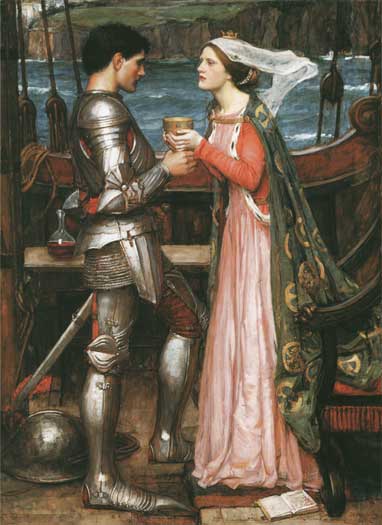The conversation between Tristram and Dagonet reflects the mood of each toward the direction the kingdom is heading. Dagonet dances when there is no music, but when Tristram begins to play his harp, Dagonet immediately stops dancing. He refuses to dance to Tristram's "broken music," preferring Arthur's music instead. Broken music refers to Tristram's affair with the wife of Mark which, along with many of the other unrighteousness acts of the knights, has created a dissonant atmosphere in Arthur's pure atmosphere. Tristram sings the following song:
"Free love--free field--we love but while we may:
The woods are hushed, their music is no more:
The leaf is dead, the yearning past away:
New leaf, new life--the days of frost are o'er:
New life, new love, to suit the newer day:
New loves are sweet as those that went before:
Free love--free field--we love but while we may."
Tristram praises "free love," which suggests a love requiring no commitment. Tristram married his wife because she shared a name with the woman he truly loved. He longs for an opportunity to be able to love Queen Isolt freely and openly. The quiet of the woods is the hushing of the old order of things, Arthur's way of doing things. Tristram is ready for a "new life," a new way of doing things. Dagonet refuses to dance to this music because he respects Arthur's rule, though he can envision the impending doom.
The above painting is Tristram and Isolde (1916) by John Waterhouse.


No comments:
Post a Comment